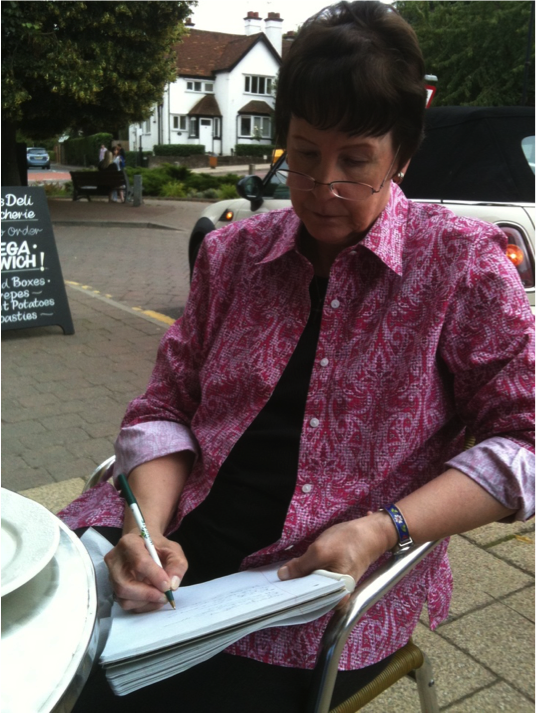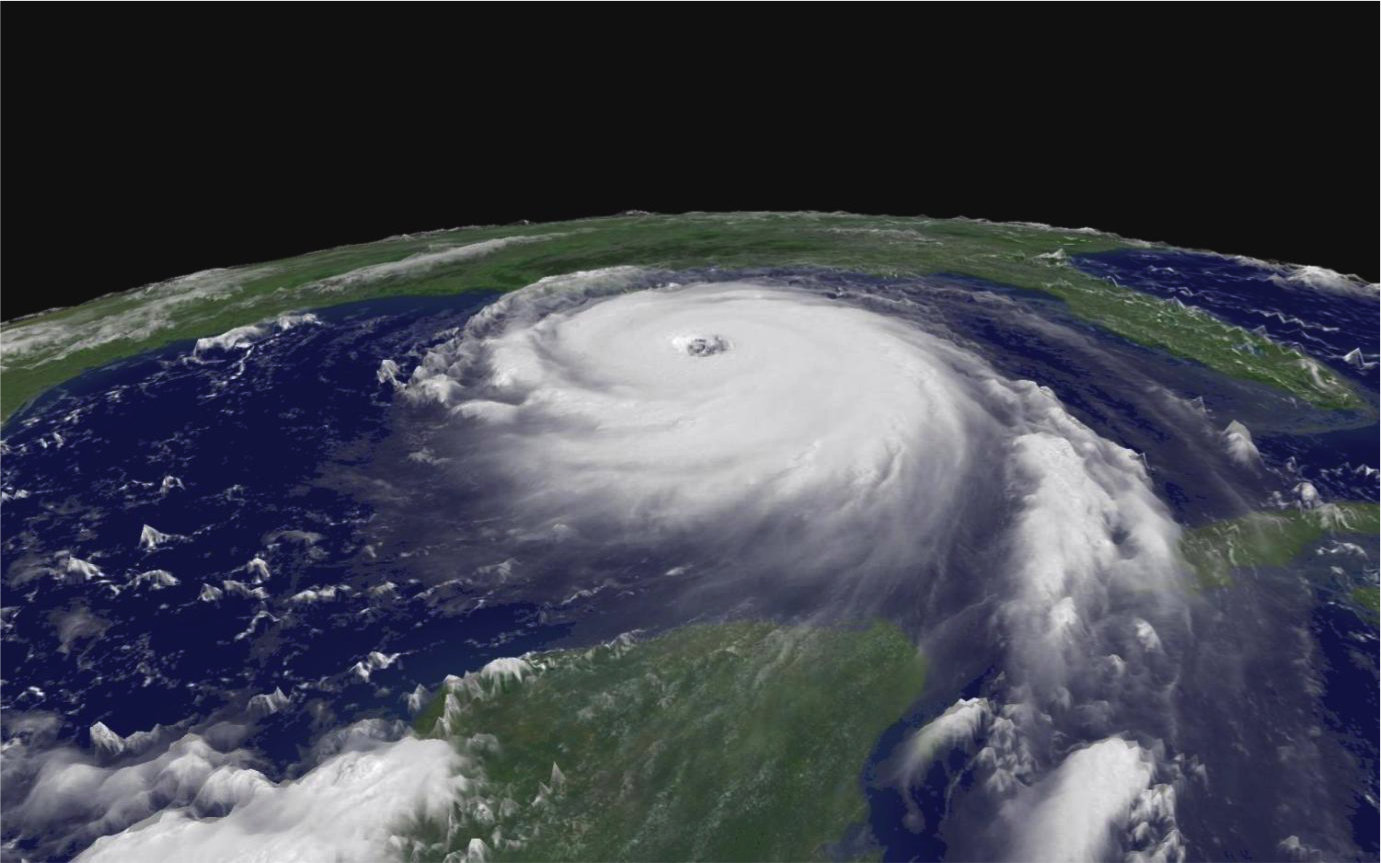I never intended to write a book. I lived in a small town in South Mississippi. I read books and reviewed books, but I never thought I’d write one.
Small towns in America still have small town values. Some people don’t lock their doors. The pace of life is relaxed, because people are more important than getting it all done. Grocery shopping means a reunion, because you’re likely to meet people you know. There are a few down sides – no major malls or grocery store chains – or bookstores! And – hurricanes.
When a hurricane is forecast to hit your area, the work begins. Outside, hurricane shutters must be installed or plywood nailed to your windows. Anything that could become a projectile must be moved indoors or secured. Inside, furniture must be covered with plastic, in case the roof goes, and everything moved up from the floor or the bottom shelves in case flooding occurs. And you must pack: clothes and toiletries for several days away plus medical, insurance, and financial records. Pets and their needs.
In September 2004 my husband and I spent 72 hours – that’s three days for the mathematically challenged – preparing for Hurricane Ivan, then hours and hours on the highway evacuating. Mississippi is a rural state, and there aren’t enough major highways to handle a high volume of traffic. I was exhausted when I first got behind the wheel then spent hours trying to keep my attention focused while I drove. No, that’s wrong. While I crept, stopped, crept. For nineteen hours!

I began to think about where I would rather be: somewhere I could speak the language, of course (that eliminated a lot of really wonderful destinations). What would I be doing? What would be happening around me? London! A crime has occurred. New Scotland Yard detectives need to solve the mystery. I have the setting and the initial characters. I know who the victim is and who committed the crime.
Back to reality: fortunately Hurricane Ivan didn’t strike our town. When the coast was clear, we returned to clean up downed trees and branches and restore order in our home. But the characters in my little fantasy kept speaking to me. Occasionally I’d think – that’s a pretty good sentence. Maybe I should write it down! I could write a charming British detective story.

Then, nearly a year later, Hurricane Katrina – a category 5 – began churning through the Gulf of Mexico as if our small town had a target painted on it. We didn’t have three days to prepare for the storm; we weren’t even home! We were in North Carolina to celebrate my mother’s ninetieth birthday.
Walk with me through this. What am I thinking? I have to get home fast! It’s Friday night – if we drive all day Saturday and Katrina is coming early Monday morning, we’ll only have one day to prepare for the storm.
What am I feeling? Panic! Because we can’t get it all done. There’s just no way to cram three days’ work into one. And fear! We’re in the path of a terrible storm, evacuation is mandatory, and we have no place to go. When the winds and waves come – and they will – will they destroy our home? When the fury of the storm hits, will we survive it? I spoke to my children on the phone and wondered if I had heard their voices for the last time.
Fast forward: we found a refuge, but we heard that our home was unlivable. That was hard to believe, because it was fourteen feet above sea level. However, with twenty feet of surge water – that’s a wall of water – there were six feet of water in the house. Almost nothing we owned was above that six foot water line. Several weeks later we went back for the first time, and the unbelievable came true. Our home was indeed unlivable. Losing a home is bad enough, but we lost more than a dwelling. We lost a way of life, a church family, a sense of belonging in the community, and a sense of safety.
What did we gain? Something we didn’t want or expect: trauma, a condition once thought to be experienced only by combat veterans but now recognized in victims of violence, serious accidents, and natural disasters. We had experienced something outside the range of usual human experience, and all the symptoms of trauma now walked hand in hand with us.
If ever there were a time when I needed refuge, a release from the present, that was it. So my Scotland Yard characters appeared again, but this time the focus of my story was different. Hurricane Ivan had given me the skeleton of a story. Hurricane Katrina gave me its heart and soul. As P.D. James said, “A writer needs as much trauma as she can take.” Or Isak Dinesen, author of Out of Africa: “Any sorrow can be borne, if you can turn it into a story.” That was true for me. Putting it down on paper helped me to process it. I called it, The Witness.

What had begun as an idea for a charming story had been transformed into a realistic, intense drama. There is power that comes from being on the inside looking out rather than on the outside looking in. Trauma had changed my life, and I knew how it would change the lives of my characters and how difficult recovery would be for them. I focused on the victim, not the police procedures. I wanted to show how trauma manifested itself in someone’s life and how that someone rebuilt a life.
Everyone who experiences trauma begins as a victim. Moving from victim to survivor is a huge shift in the balance of power, but victim and survivor are two sides of the same coin. I wanted to be more than a survivor, and I wanted my protagonist to be more than a survivor.
What’s the next step in the healing process? Victory! Hemingway said, “The world breaks everyone, and afterward some are stronger at the broken places.” That’s victory. That’s what I wanted to my life, and that’s what I wanted for my protagonist.
Keats wrote, “Nothing ever becomes real till it is experienced.” As an author, I walked in my characters’ shoes. I now invite you to walk in their shoes as you read and experience, The Witness.



